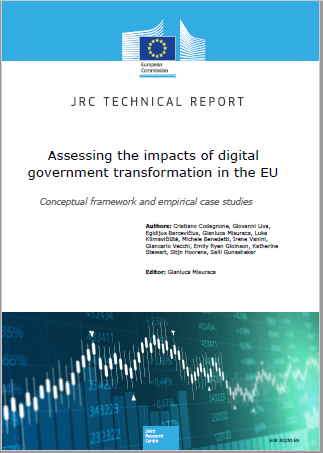[Return to ELISE's Exploring Digital Government Transformation page]
 Abstract
Abstract
This report presents the results of the conceptual and empirical work conducted as part of the JRC research on “Exploring Digital Government Transformation: understanding public sector innovation in a data-driven society” conducted within the framework of the “European Location Interoperability Solutions for eGovernment (ELISE)" Action of the ISA2 Programme on Interoperability solutions for public administrations, businesses and citizens, coordinated by DIGIT.
Building on the systematisation of the state of the art carried out in the previous phase of the research, the report presents an original conceptual framework for assessing the impacts of Digital Government transformation in the EU and discusses the results of case studies carried out using an experimental or quasi-experimental approach to test and validate it, carried out in different policy areas in various EU countries.
The report concludes outlining the final proposal of DigiGov F 2.0, which defines the dimensions and elements of analysis for assessing the effects that can be generated by digital innovation in the public sector and the impacts they have at social, economic and political levels in different policy-cycle phases and governance contexts.
Additional information
Scientific & Technical Lead: Gianluca Misuraca
Check out the report Analysis of the state of the art and review of literature of the Exploring Digital Government transformation in the EU study on which the here presented Conceptual framework and empirical case studies builds upon.

